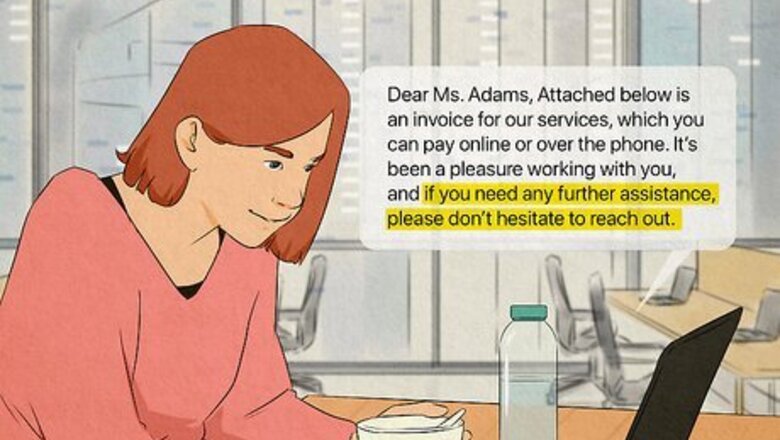
views
7 Formal Ways to Say “Let Me Know if You Need Anything”
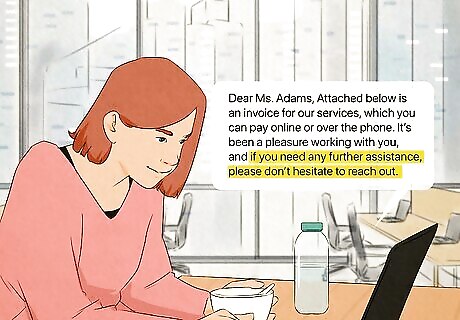
“If you need any further assistance, don’t hesitate to reach out.” This is a formal and professional way to end an important email. Whether you’re communicating with a coworker, prospective employee, or an important client, this phrase conveys your professionalism and willingness to be of assistance. Here’s an example email: “Dear Ms. Adams, Attached below is an invoice for our services, which you can pay online or over the phone. It’s been a pleasure working with you, and if you need any further assistance, please don’t hesitate to reach out.”
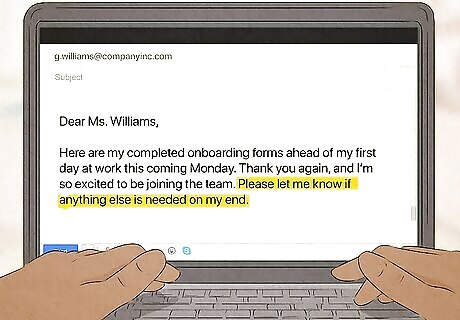
“Please let me know if anything else is needed on my end.” If you’re sending a work product or documents to someone, this phrase makes a great addition to your email. This lets them know that you’re ready and willing to provide anything else they might need. “Dear Ms. Williams, Here are my completed onboarding forms ahead of my first day at work this coming Monday. Thank you again, and I’m so excited to be joining the team. Please let me know if anything else is needed on my end.” “Dear Kelsey, Here are the revised slides for Wednesday’s meeting. Please let me know if anything else is needed on my end!”
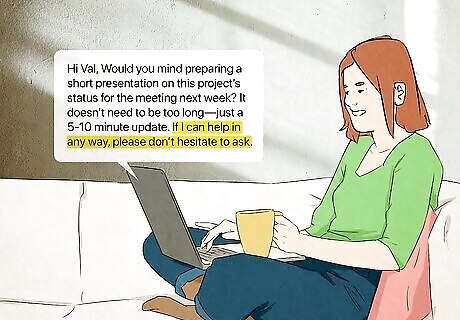
“If I can help in any way, please don’t hesitate to ask. This phrase is a polite and professional way to let someone know that you’re available to help. It’s a great phrase to use if you’re assigning a task to an employee or communicating with a coworker about a project. “Hi Val, Would you mind preparing a short presentation on this project’s status for the meeting next week? It doesn’t need to be too long—just a 5-10 minute update. If I can help in any way, please don’t hesitate to ask.”
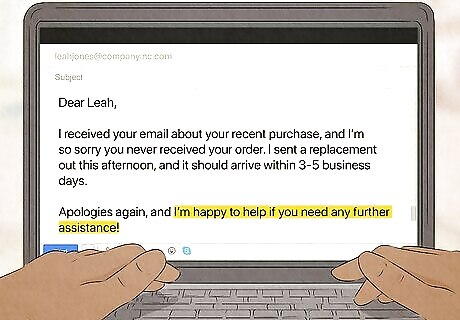
“I’m happy to help if you need any further assistance.” Sending this phrase in an email to a colleague or customer shows your professionalism and willingness to support them. It’s upbeat and polite, which keeps the positive energy flowing between you. “Dear Leah, I received your email about your recent purchase, and I’m so sorry you never received your order. I sent a replacement out this afternoon, and it should arrive within 3-5 business days. Apologies again, and I’m happy to help if you need any further assistance!”
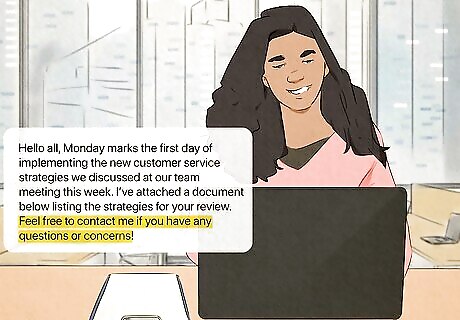
“Feel free to contact me if you have any questions or concerns.” This phrase is a professional way to signal that you’re available to address any concerns an employee, coworker, client, or customer may have. It works especially well if you’re updating people about new policies or standards at the workplace. For example: “Hello all, Monday marks the first day of implementing the new customer service strategies we discussed at our team meeting this week. I’ve attached a document below listing the strategies for your review. Feel free to contact me if you have any questions or concerns!”
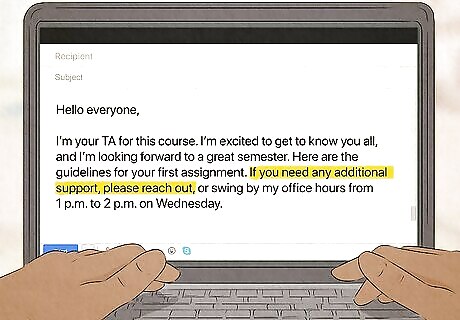
“If you need any additional support, please reach out.” If you want to make sure the recipient of your email knows you’re available to provide ongoing support, this is a great phrase to use. It works in both a professional and an academic setting. “Hello everyone, I’m your TA for this course. I’m excited to get to know you all, and I’m looking forward to a great semester. Here are the guidelines for your first assignment. If you need any additional support, please reach out, or swing by my office hours from 1 p.m. to 2 p.m. on Wednesday.”

“I’m happy to provide any additional information you might need.” This phrase is a friendly and professional way to convey that you’re available to offer any clarification or answer any questions for the email’s recipient. “Dear Alex, Attached below is an estimate for the cost of our services, as discussed today at our meeting. We’re looking forward to working with you, and I’m happy to provide any additional information you might need.” “Dear Evelyn, Thank you for taking this project off my hands! I know you’ll do an amazing job. Here is everything my team has worked on so far, and I’m happy to provide any additional information you might need.”
Ways to Offer Support to Friends & Loved Ones
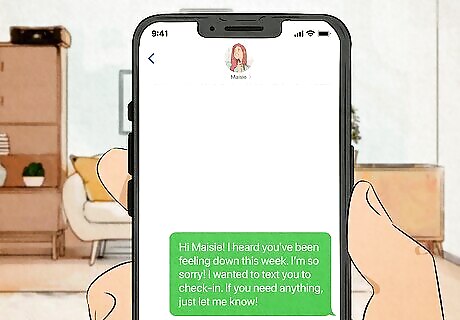
“If you need anything, just let me know.” This variation of the phrase is a friendly and less formal way to show someone you’re there for them. It’s still professional enough to send to a coworker, but it can also be used to offer support to a friend or loved one in a more personal setting. Here are some examples: “Hey Jacob, of course I can bring some extra dessert for the party—don’t worry at all! If you need anything else, just let me know.” “Hi Maisie! I heard you've been feeling down this week. I’m so sorry! I wanted to text you to check-in. If you need anything, just let me know!” “Dear Parker, I was so sorry to hear about your dad’s passing. He was a truly special man, and I feel so lucky to have known him. If you need anything at all, just let me know. I’m here for you!”

Consider offering specific, practical help to the person who’s struggling. It’s definitely appropriate to say “Please let me know if you need anything,” but there may be better ways to show your support. This phrase puts the pressure on them to figure out what help they need, which can be stressful if they’re already going through a difficult event. Instead, try offering to help them with everyday tasks. This takes some things off of their plate and gives them a much-needed reprieve! For example, to support a friend who has depression, offer to come over to tidy their place up, do some laundry, or cook a yummy meal. Just be sure to ask if this is okay first, rather than showing up unannounced. If you want to help a grieving friend, let them know you’re available to bring over takeout or pre-cooked meals for their family, drop their kids off at school, or help out with chores like laundry or grocery shopping. If they aren't up for visitors, consider sending them a self-care box. Fill the box up with comforting, relaxing gifts, like essential oils, bath bombs, a cozy blanket, candles, or yummy snacks.



















Comments
0 comment